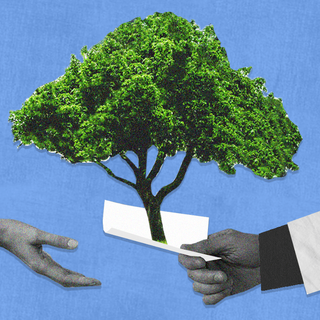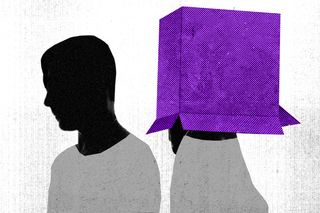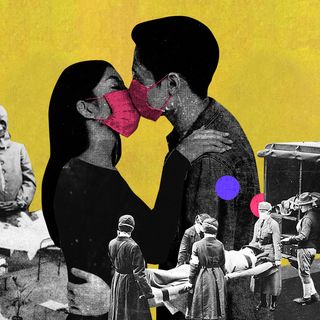
Why Socially Anxious People Have Less Satisfying Intimate Relationships
“Once socially anxious adults manage to find a romantic partner,” their depression determines how they navigate intimacy.

Socially anxious people may experience lower levels of satisfaction in their intimate relationships, as different studies have found over the years. However, a new study suggests that social anxiety itself might not be to blame.
Published in Cambridge’s Behavior Change, the study suggests that socially anxious individuals also live with elevated levels of depression, which could be driving the low levels of satisfaction in their relationships.
The first part of the research involved a survey of 444 adults, who completed questionnaires pertaining to their social anxiety and their respective relationship statuses. The researchers noted that individuals who scored higher on social anxiety levels were more likely to have never had a relationship that lasted more than three months. Not only that, but their chances of successfully establishing a relationship were also relatively lower than individuals whose social anxiety levels were lower.
“Many people spend a lot of time seeking out romantic partners and wanting to spend time with them… However, speaking to strangers and dating might be harder for some people, like those who may be anxious in social situations,” said Frances Doyle, a clinical psychologist and researcher at Western Sydney University, who led the study.
Due to fears about being perceived negatively, socially anxious individuals may struggle to navigate social interactions — including first dates — impacting their “ability to establish, develop, and maintain romantic relationships,” an article explains, adding that “the higher your anxiety, the more difficult emotional intimacy may be because you may see it as too risky.” This is precisely one of the reasons why many socially anxious adults prefer online dating since it allows them to establish a connection with potential partners through texts from the comfort of their safe spaces before meeting them face-to-face in-person.
Related on The Swaddle:
How a Partner’s Fragile Masculinity Can Lead to Anxiety, Less Sexual Satisfaction for Women
However, once they’re able to overcome the initial anxiety and settle into a relationship, the satisfaction level continues to remain low, the researchers noted. They based their conclusions on questionnaires completed by 188 participants — out of the original set of 444 — who stated they were presently in romantic relationships that were more than three months old.
Assessing their responses, however, the researchers found that it wasn’t social anxiety that impacted the quality of their relationships. As Doyle explained, “…once socially anxious adults manage to find a romantic partner, their social anxiety does not seem to impact how satisfied they feel about their relationship.” Instead, depression seems to be doing that, “and those with social anxiety are at a greater risk of experiencing depression symptoms.”
Past research also suggests that depression can affect the quality of intimate relationships due to depressed individuals not being able to enjoy time together with their partners, being irritable and more prone to act out, feeling hopeless about everything in life including the relationship, while also being less attentive to their partners’ needs. Living with depression can also adversely affect one’s sex drive, leading to a “long-term lack of sexual connection in your relationship.”
Experts have also pointed out that depressive symptoms “can make us feel lethargic, impact our ability to express empathy or cause feelings of anxiety and isolation. Sometimes these symptoms can cause codependency or even resentment of your partner.” Over time, the little things add up.
Related on The Swaddle:
What Happy Relationships Look Like, According to Research
The researchers believe that it’s also entirely possible that shared elements — like cognitive biases — between social anxiety and depression may be contributing to poorer relationship satisfaction among socially anxious individuals. But, at present, given the co-occurrence of poor relationship satisfaction and depressive symptoms in the participants, finding ways to address the latter might be a good place to start — to help people with social anxiety experience better outcomes in intimate relationships.
“Regardless of the exact mechanisms at play, the findings from the present study are suggestive that depression symptomology may be a better target for treatments for socially anxious individuals wishing to improve romantic relationship satisfaction,” Doyle notes.
And so, the next step is to check if that indeed helps. “Further research is needed to examine the clinical utility of addressing depression symptoms in socially anxious individuals, and the impact on relationship satisfaction,” she adds. Doing so would also help them dismiss another inverse possibility — about whether it is the low levels of relationship satisfaction among socially anxious individuals that leads to depressive symptoms, instead.
While the study has left many questions unanswered, it has resolved one thing: social anxiety, by itself, is not the culprit behind individuals living with it having less satisfying intimate relationships.
Devrupa Rakshit is an Associate Editor at The Swaddle. She is a lawyer by education, a poet by accident, a painter by shaukh, and autistic by birth. You can find her on Instagram @devruparakshit.
Related


Even Moderate Drinking May Be Bad for Health, Finds New Study
